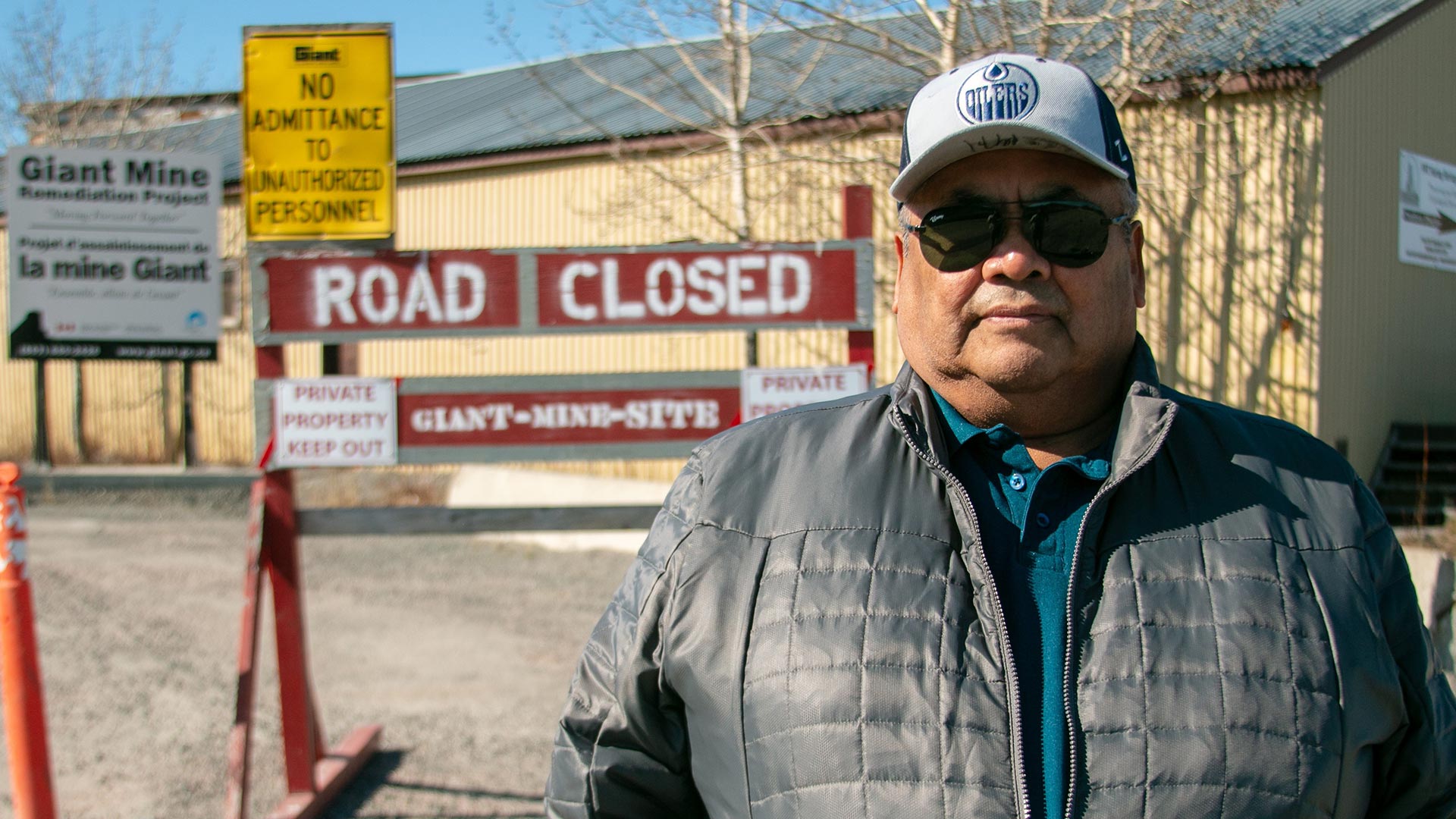Indigenous groups in the Northwest Territories are asking questions about how Dene are benefiting from the cleanup of the Giant mine, one of the largest corporate disasters in Canada’s history.
The groups says there’s no data to show how many locals are going to be trained and hired to clean up the mess left behind by the mine.
“Our traditional land is really important to us, so the best people to clean it up is the people who depend on the land and survive on the land,” said Edward Sangris, chief of Dettah – Yellowknives Dene First Nations.
The undertaking is massive. The plan is to freeze 237,-000 metric tonnes of arsenic trioxide left over from 50 years mining gold at the site.
The question is how much economic benefit from this nearly $1 billion remediation project will go towards the Indigenous people who’ve never been compensated for the destruction of their land.
The federal government is in charge of the remediation project which is scheduled to start in 2021.
Sangris said there’s no definitive number when it comes to jobs for his people.
Nor have they received all the training needed to get ready for boost on the ground.
“In our case we are asking for sole source contracting because we are the most affected by this contract,” Sangris said. “It is something that needs to be discussed with the federal government to ensure the Yellowknives Dene get the maximum benefit of this remediation.
“I think sole sourcing will be one of the things that will benefit the Yellowknives Dene.”

The Giant mine oversight board is an independent entity that has been review the clean up since 2015.
Its last annual report said there continues to be an imbalance in the level of effort on economic and human well being.
Kathy Racher, head of the board, said the members have taken a good look at the local employment numbers.
“What we have found is those numbers over the last few years have really fluctuated over the past few years. Last year they were pretty good, then they weren’t but the year before that they were,” she said.
“So there’s a lot of uncertainty in what those numbers mean. It’s hard to know if things are getting better or being stable.”
The board is suggesting Crown-Indigenous Relations appoint a special envoy to oversee the economic opportunities for locals.
“That special envoy needs to look at everything, not just the economic benefit aspect of it,” Sangris said. “Also the social, the cultural piece of the people of the traditional territory.”
The Yellowknives Dene and the Oversight Board also have many concerns over time and money for the project’s future as well as compensation for its past harms.
The project is funded for 15 years under the federal government’s northern abandoned mine reclamation project.
But that’s a much shorter time than the 100 years that it is going to take for the monitoring and maintenance of the site.
There’s also the post-closure costs, which have fluctuated over the years with no final amount being set upon.
“Whatever mechanism we sort out whether it is a trust fund or transfer of money for long term maintenance,” Rachel said. “We would like to see it in legislation as the strongest kind of guarantee there will be money earmarked for the maintenance and care of the site.”
Read More:
Oversight board tells Ottawa to apologize and compensate Dene for Giant mine debacle
In 2017 the oversight board noted in their annual report that a public apology and financial compensation was in order for the Yellowknives Dene because of the harms endured during the operation of the mine and the toxic legacy it leaves behind.
APTN News requested an interview with Dan Vandal, the minister for Northern Affairs to seek out answers on the status of the Oversight Board’s request.
Vandal didn’t agree to an interview – but his office sent this statement.
“The Department has provided financial support to the Yellowknives Dene First Nation so that they may research and assess their historical record,” said Tim Kenny, media relations for Crown-Indigenous Relations and Northern Affairs Canada. “This information will help the Department and the Government of Canada determine our response to this long standing issue. It is the understanding of the Department that the Yellowknives Dene First Nation have completed their research and we look forward to them sharing it with us.”
The department said they are currently in discussions with the Yellowknives Dene First Nation on the matter.










